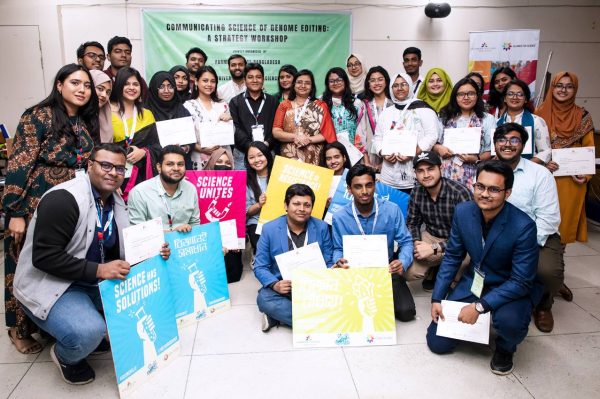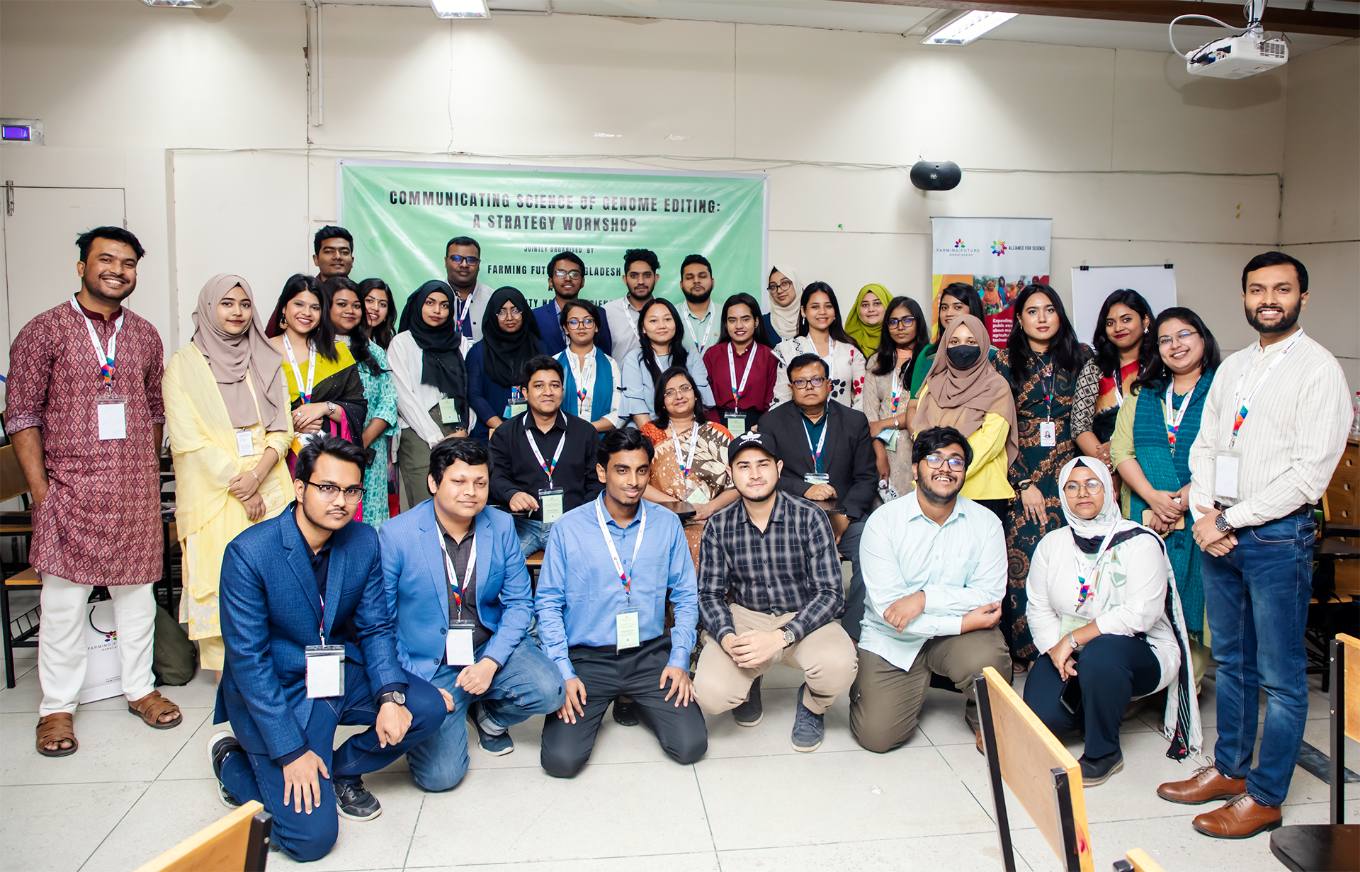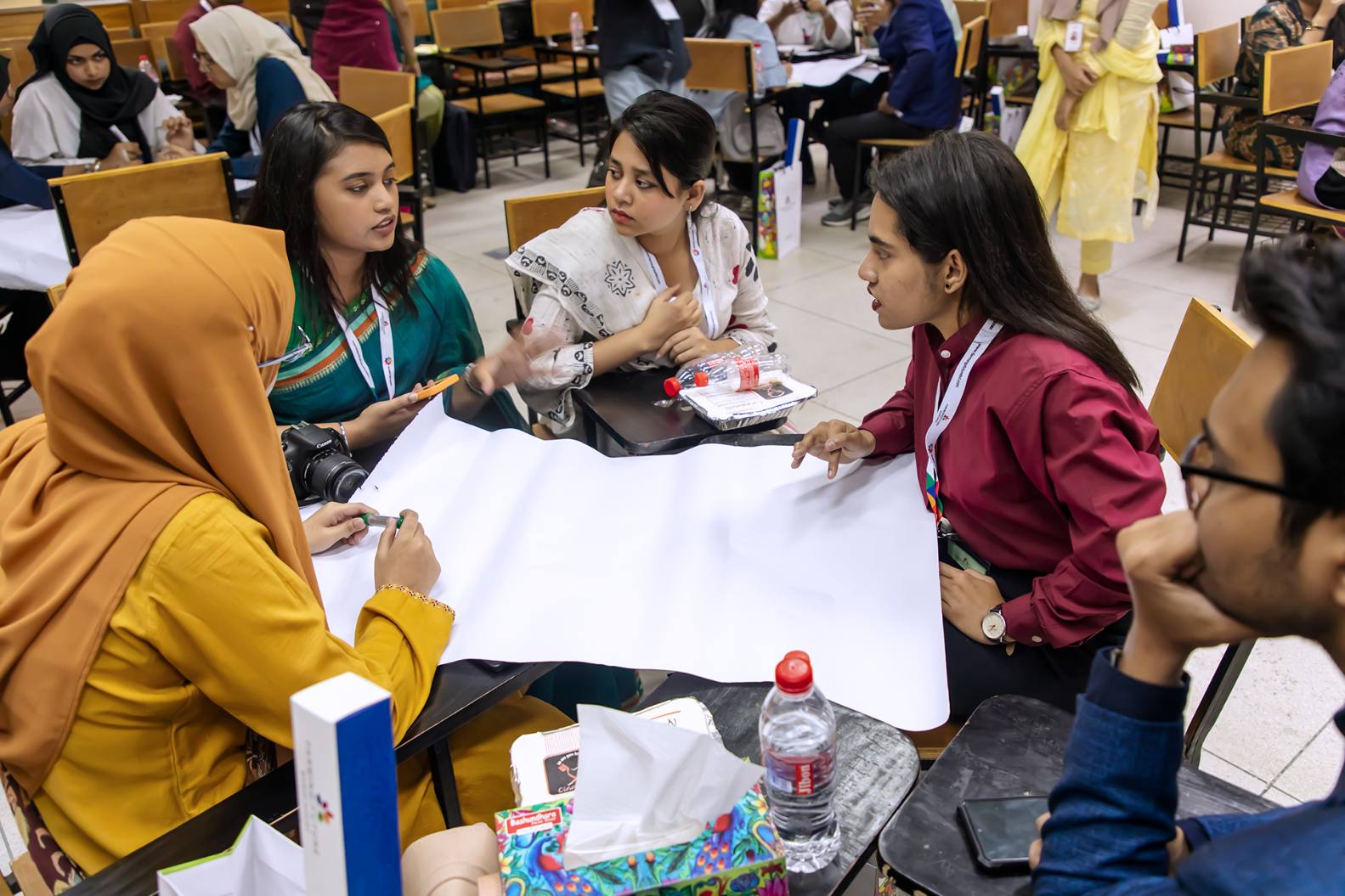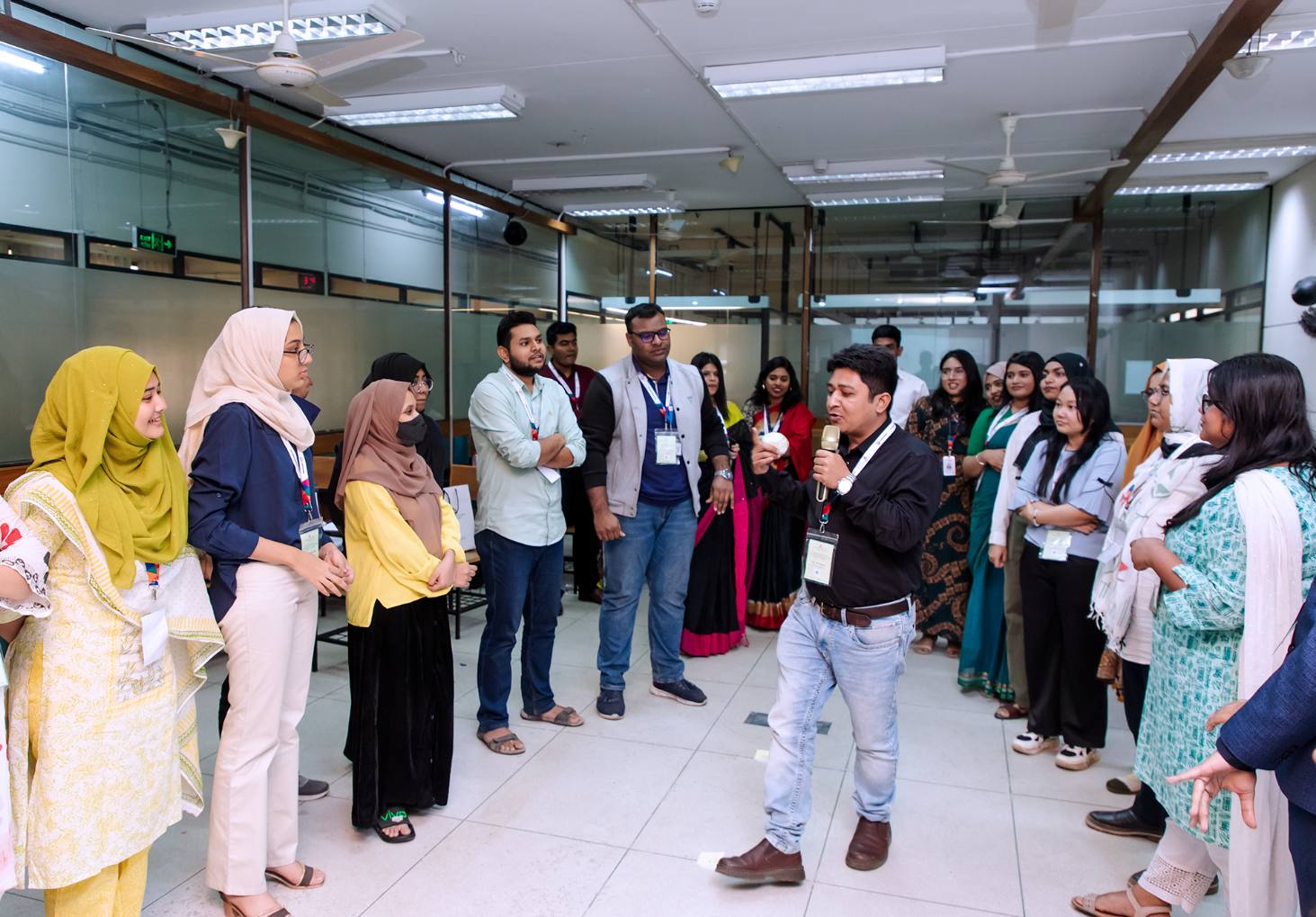
Farming Future Bangladesh (FFB) and BRAC University's Natural and Science Club joined forces to organize a groundbreaking workshop titled "Communicating Science of Genome Editing: A Strategy Workshop." The event took place at the university premises in Mohakhali, Dhaka, with the aim of training participants in effective science communication and promoting the acceptance of modern technologies in Bangladesh.
The workshop, held throughout the day, encompassed a series of activities and presentations that educated and engaged the attendees. Distinguished speakers, including Dr. Aparna Islam, Professor at the Department of Mathematics and Natural Sciences, Md Arif Hossain, CEO & ED of FFB, and Reaz Ahmad, Executive Editor of The Dhaka Tribune, led the sessions. Together, they emphasized the immense potential of Agricultural Biotechnology in Bangladesh, highlighting how modern biotechnology can address critical issues such as climate change, global hunger, and disease eradication.

A primary focus of the workshop was empowering students to not only generate innovative ideas but also equip them with the skills to execute those ideas through careful planning. Participants gained insight into the power of effective science communication, realizing that complex scientific concepts, such as genome editing, can be presented in a digestible manner to the general public. By dispelling doubts and misconceptions, attendees learned to foster public understanding and appreciation for the efficiency and effectiveness of these advanced techniques.
Dr. Aparna Islam delivered an informative seminar on gene-edited crops and the applications of agribiotechnology in Bangladesh. Md Arif Hossain, CEO & ED of FFB, shared insights into how FFB effectively communicates science and innovation to the general public through stakeholder engagement. Reaz Ahmad, Executive Editor of The Dhaka Tribune, stressed the importance of science communication and evidence-based reporting in Bangladesh, particularly in the field of science and technology.
Following the presentation, participants engaged in group work and sharing sessions, discussing the problems they aimed to solve, identifying key audiences, determining entry points to reach those audiences, and outlining steps to bring about change. The group work was followed by a summary and sharing session. Attendees were tasked with formulating STEM (Science, Technology, Engineering, and Math) ideas to address local societal problems, while considering the unique challenges faced in Bangladesh. SMART goals and leadership skills were emphasized during this session, as participants collaborated in segmented groups to tackle the assignment.

The day concluded with group presentations, a certificate ceremony to recognize the participants' efforts, and closing remarks from the organizers. The "Communicating Science of Genome Editing: A Strategy Workshop" successfully equipped students with the knowledge and skills necessary to effectively communicate complex scientific concepts to the public. By promoting modern technologies and fostering public acceptance, the workshop played a pivotal role in paving the way for life-changing innovations in Bangladesh.



